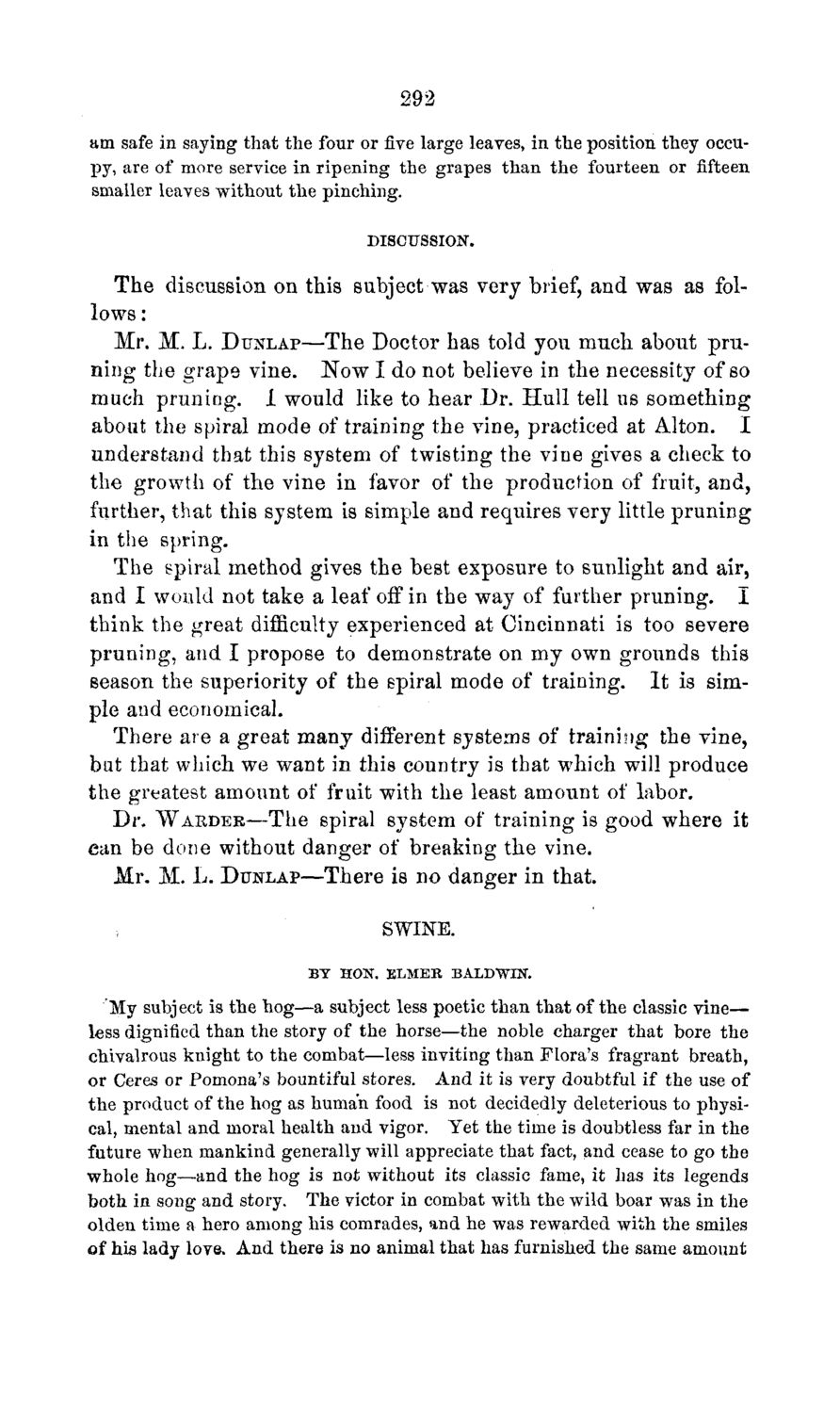| |
| |
Caption: Board of Trustees Minutes - 1869
This is a reduced-resolution page image for fast online browsing.

EXTRACTED TEXT FROM PAGE:
292 am safe in saying that the four or five large leaves, in the position they occupy, are of more service in ripening the grapes than the fourteen or fifteen smaller leaves without the pinching. DISCUSSION. The discussion on this subject was very brief, and was as follows : Mr. M, L. DUNLAP—The Doctor has told you much about pruning the grape vine. Now I do not believe in the necessity of so much pruning. 1 would like to hear Dr. Hull tell us something about the spiral mode of training the vine, practiced at Alton. I understand that this system of twisting the vine gives a check to the growth of the vine in favor of the production of fruit, and, further, that this system is simple and requires very little pruning in the spring. The spiral method gives the best exposure to sunlight and air, and I would not take a leaf off in the way of further pruning. I think the great difficulty experienced at Cincinnati is too severe pruning, and I propose to demonstrate on my own grounds this season the superiority of the spiral mode of training. It is simple and economical. There are a great many different systems of training the vine, but that which we want in this country is that which will produce the greatest amount of fruit with the least amount of labor. Dr. WARDER—The spiral system of training is good where it can be done without danger of breaking the vine. Mr. M. L. DUNLAP—There is no danger in that. SWINE. BY HON. ELMER BALDWIN. "My subject is the hog—a subject less poetic than that of the classic vine— less dignified than the story of the horse—the noble charger that bore the chivalrous knight to the combat—less inviting than Flora's fragrant breath, or Ceres or Pomona's bountiful stores. And it is very doubtful if the use of the product of the hog as human food is not decidedly deleterious to physical, mental and moral health and vigor. Yet the time is doubtless far in the future when mankind generally will appreciate that fact, and cease to go the whole hog—and the hog is not without its classic fame, it has its legends both in song and story. The victor in combat with the wild boar was in the olden time a hero among his comrades, and he was rewarded with the smiles of his lady love. And there is no animal that has furnished the same amount
| |